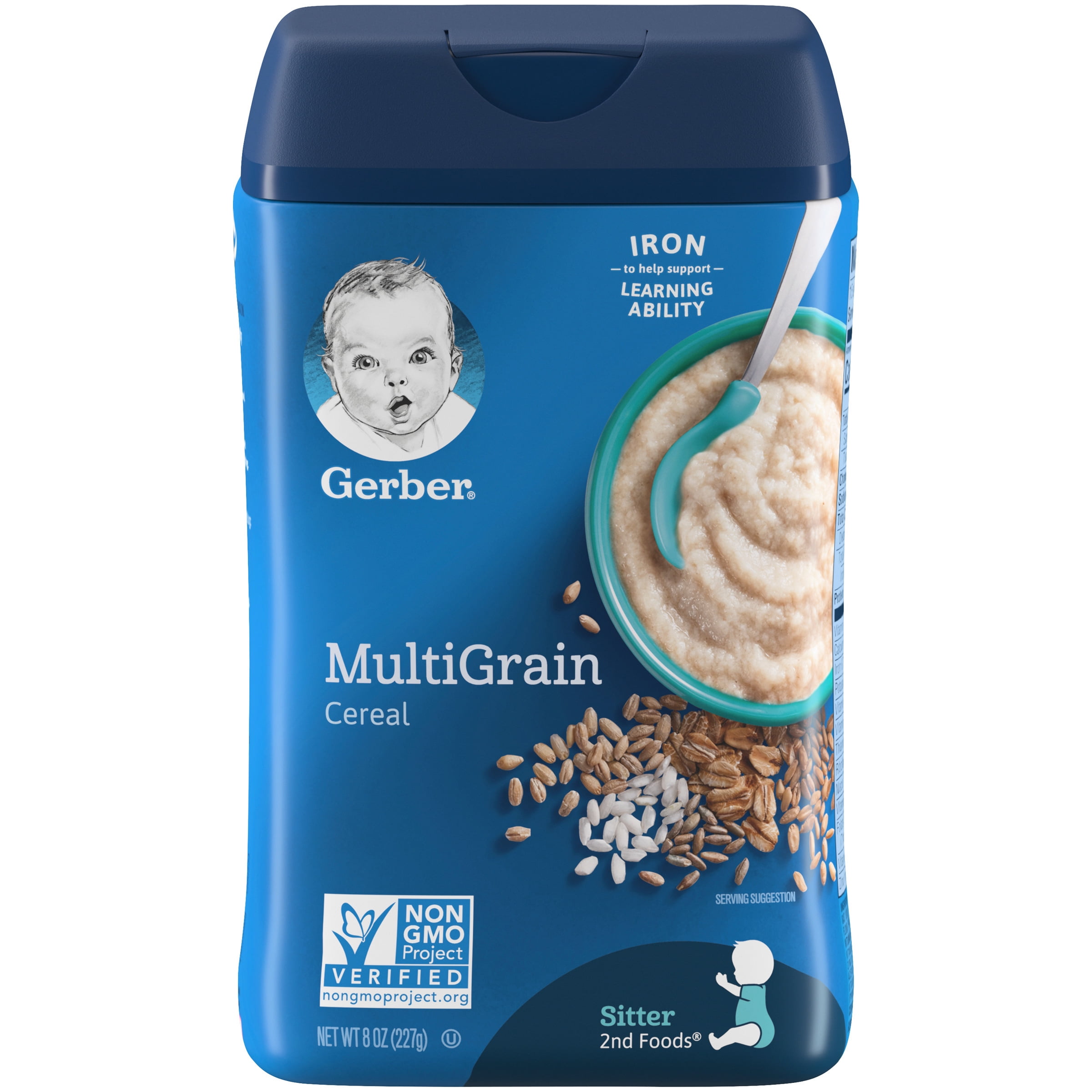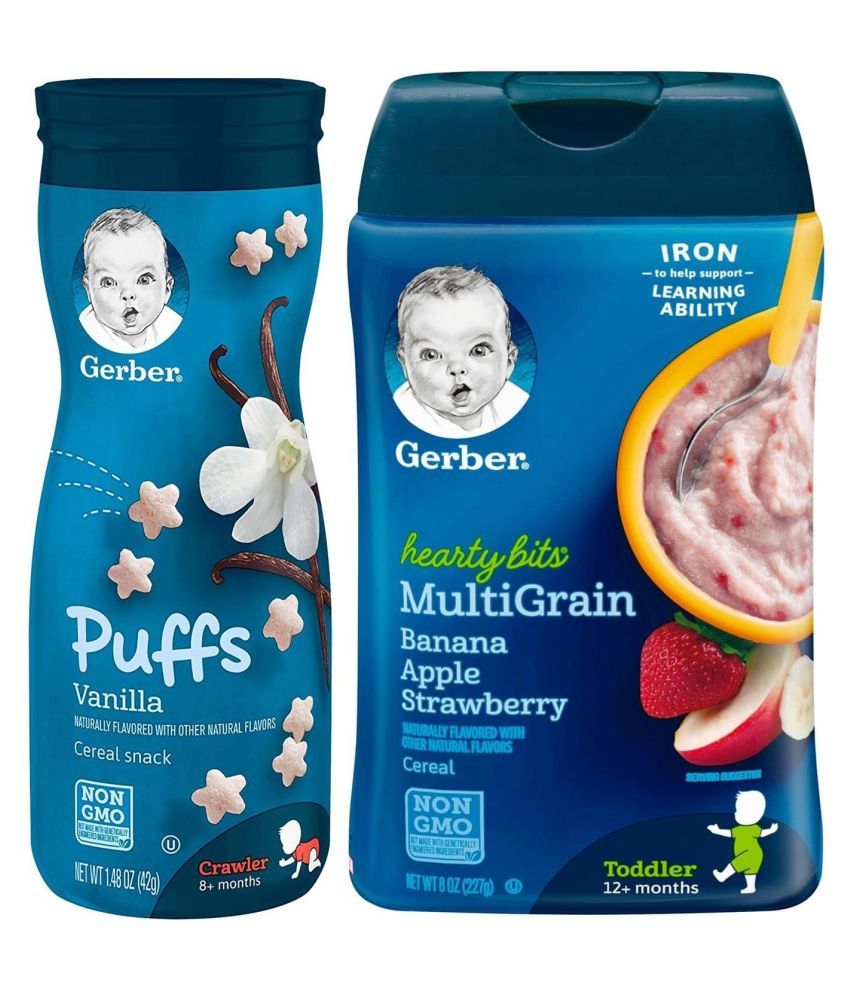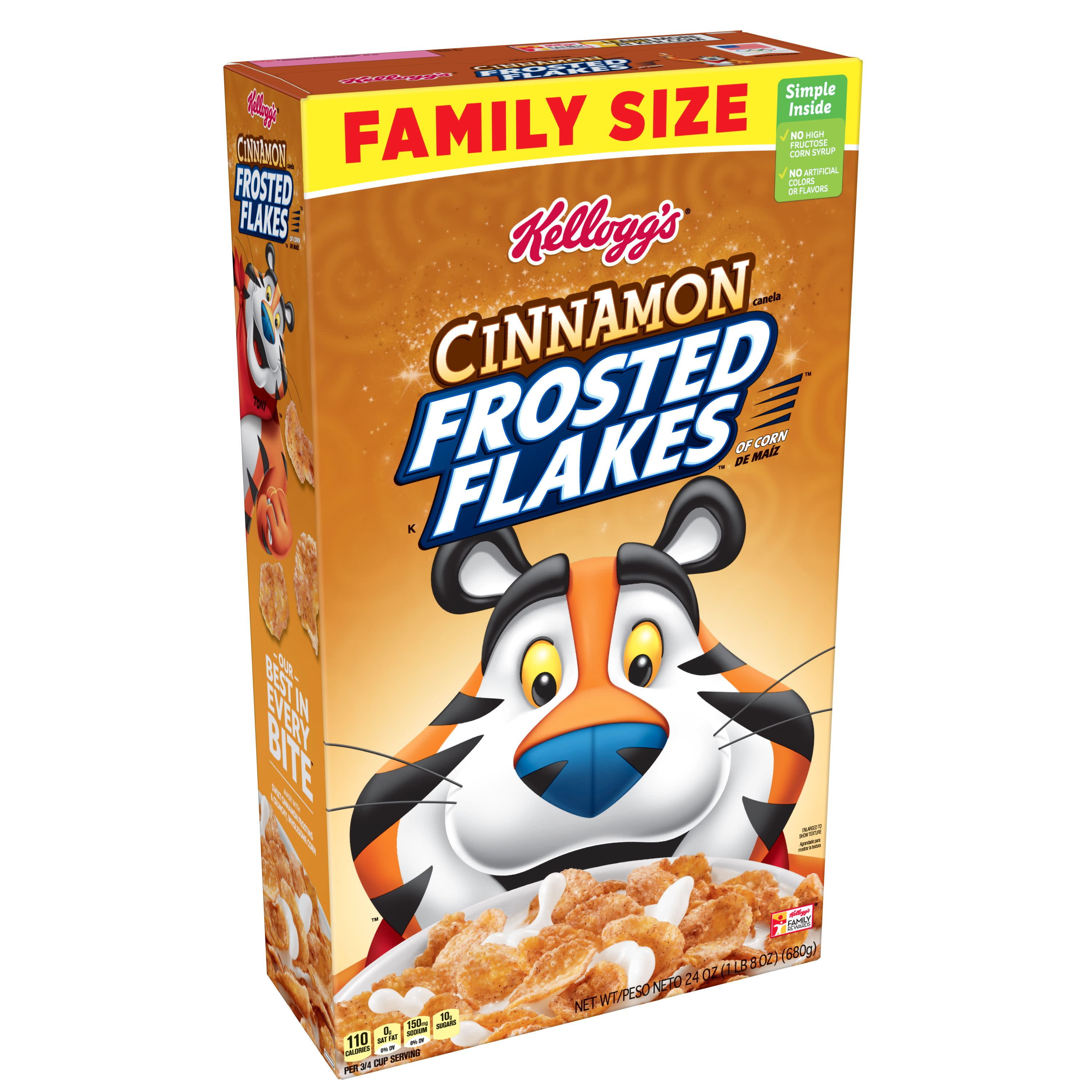

Iron-fortified infant cereal: Mix 2-3 teaspoons rice cereal (to begin with) or barley cereal with formula, water, or breast milk to create a semisolid consistency.
 Iron-fortified infant formula: 24-40 ounces daily, or more as needed. Breast milk: Feed on demand, usually about 4-7 times daily, or. Read Food Allergy and Intolerance, for more information before you begin feeding baby solid foods. Note: If allergies run in your family, you must delay the introduction of certain foods to baby. Don't worry if your baby is eating more or less than the suggested amounts as long as your pediatrician says he is growing properly. Here are some guidelines to help you month by month. Gradually introduce single-ingredient pureed vegetables and fruits that contain no sugar or salt.It's not always easy to know what to feed a growing infant. Avoid feeding your baby only rice cereal due to possible exposure to arsenic. Offer a variety of single-grain cereals such as rice, oatmeal or barley. Simply so, what cereal should babies start with? Experts recommend that babies be breastfed or bottle-fed (with expressed breast milk or formula until 6 months of age.
Iron-fortified infant formula: 24-40 ounces daily, or more as needed. Breast milk: Feed on demand, usually about 4-7 times daily, or. Read Food Allergy and Intolerance, for more information before you begin feeding baby solid foods. Note: If allergies run in your family, you must delay the introduction of certain foods to baby. Don't worry if your baby is eating more or less than the suggested amounts as long as your pediatrician says he is growing properly. Here are some guidelines to help you month by month. Gradually introduce single-ingredient pureed vegetables and fruits that contain no sugar or salt.It's not always easy to know what to feed a growing infant. Avoid feeding your baby only rice cereal due to possible exposure to arsenic. Offer a variety of single-grain cereals such as rice, oatmeal or barley. Simply so, what cereal should babies start with? Experts recommend that babies be breastfed or bottle-fed (with expressed breast milk or formula until 6 months of age. 
Most babies are not ready for solid foods, including infant cereals, until they are about 6 months old, though some babies could be ready a month or two earlier. “It provides iron, which is needed-especially for breastfed infants-at about 4 to 6 months of age.” Subsequently, can I give my baby cereal at 3 months? Keeping this in view, which cereal is best for 4 month baby?Įarth's Best Organic Infant Rice Cereal “Made with organic brown rice, this is the same cereal I gave my kids 20 years ago,” says Amidor.

These foods include infant cereals, meat or other proteins, fruits, vegetables, grains, yogurts and cheeses, and more. By the time he or she is 7 or 8 months old, your child can eat a variety of foods from different food groups. Your child can begin eating solid foods at about 6 months old.








 0 kommentar(er)
0 kommentar(er)
